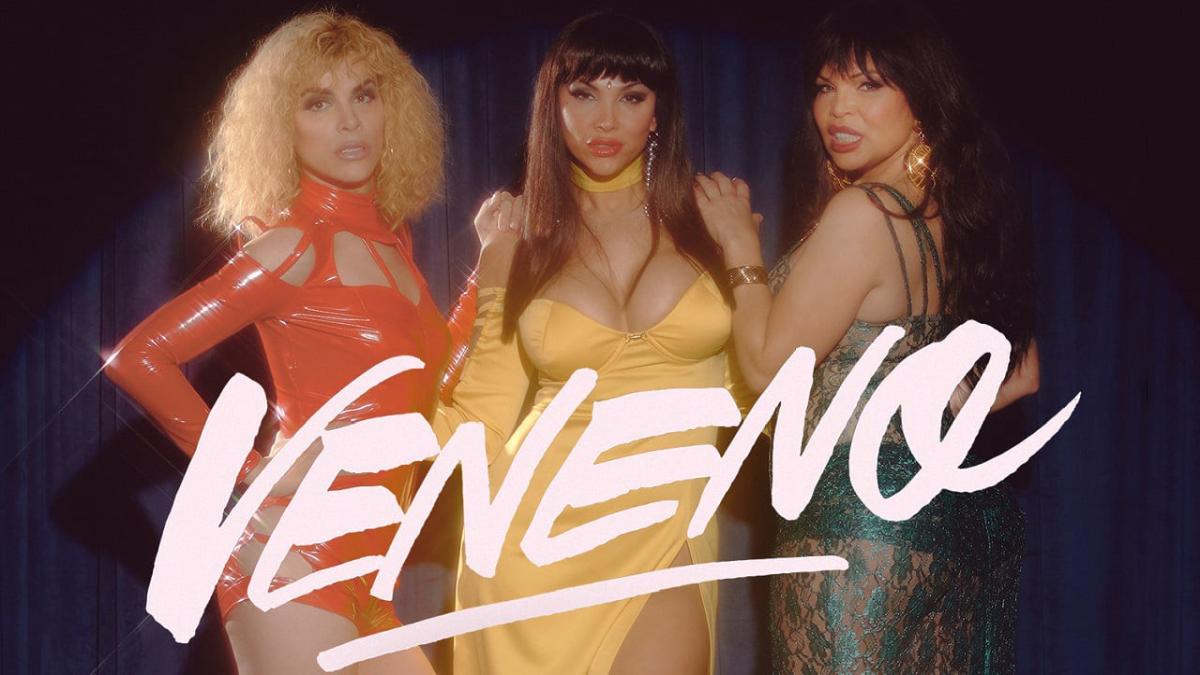Maybe even social justice warriors are put off by subtitles. Or maybe they just don’t want to engage with portrayals of trans sex workers. Because there’s no reason why SJWs are busy dragging Sarah Paulson for not including pronouns in her Twitter bio instead of drawing attention to Spanish-language series Veneno.
Based on the life of trans icon and Spanish celebrity Cristina Ortiz Rodríguez (better known as La Veneno), the streaming series is a funny, warm, moving look at a lot of things currently in the cultural zeitgeist. There are three concurrent plots in the eight-episode series: Veneno’s rise to fame in the ’90s, from small Spanish village to TV personality; Veneno’s later life, telling her story to journalist Valeria; and Valeria’s own acceptance of her true gender identity, inspired partly by Veneno and her friends.
The series doesn’t shy away from Veneno’s darker periods, including time spent in prison (those sequences are infuriating and harrowing in equal measure), but the show itself serves mainly as a paean to the family one creates for oneself. Even in their middle age, Veneno and her former sex worker rivals are a close-knit bunch, happily taking in the young Valeria for paella and stories.
Buck Angel Is a Proud Transsexual—And Refuses to Be Labeled a ‘Transphobe’ for It
The series also offers a romanticized view of sex workers, but hey—why not have a rose-tinted look at working a park in Madrid instead of the endless crop of corpses that litter American television procedurals? If the only threats in those scenes are aimed at interlopers from the women themselves, then so be it. Watching these women get the chance to own their sexuality and power is worth the eliding. And the sex scenes are hot.
That goes for both character and performer. Trans performers Jedet, Daniela Santiago, and Isabel Torres all play Veneno at various stages of her life, while Lola Rodriguez plays Valeria and, triumphantly, Paca “La Piraña” plays herself: loyal, grounded friend and protector to Veneno. Knowing that Paca is reliving her time with Veneno—and in some instances near the end of the show, getting to act out a fantasy—adds a bittersweet flavor to a series that serves as a reminder that for many in the LGBTQ+ community, friendships are the real family ties.
What’s more remarkable is how little-known Veneno may be to American audiences, even LGBTQ+ ones. A trans sex worker became a cultural icon in Spain over 20 years ago, and drag queens didn’t gain national exposure until RuPaul’s Drag Race in 2009.
What a shame, then, that we all know much more about famous TERFs than we do about trans trailblazers, even with a series dedicated to one—starring four trans women—available to stream. Just another sign that it’s easier to spread hate than kindness.




